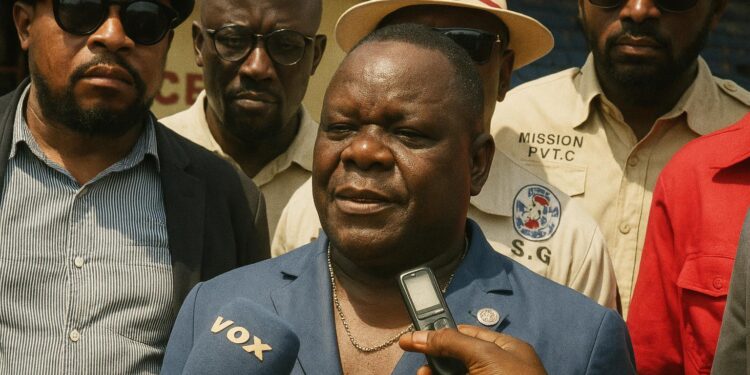A regulatory pivot for safer and more competitive roads
The Ministry of Transport in Brazzaville has entered what officials describe as an “era of professional accountability” by urging all domestic and foreign hauliers to secure the new Certificat de Capacité. The document, conceived under Law 16-2022 on Road Transport, attests that an operator possesses both the technical competence and the financial robustness required for modern freight activity. By tethering market access to verifiable skills, the government seeks to reverse a long-standing paradox: abundant transit potential overshadowed by accident statistics that rank among Central Africa’s highest (Commission Économique pour l’Afrique, 2023). Although enforcement will begin gradually, senior civil servants emphasise that the shift from permissive licensing to competency-based accreditation is irreversible.
Economic reverberations along the Pointe-Noire–Bangui axis
Analysts at the African Development Bank calculate that inefficient trucking adds up to 30 % to the final cost of consumer goods entering the Congolese hinterland (AfDB, 2023). The Capacity Certificate is therefore framed not merely as a safety instrument but as a lever of macro-economic efficiency. By filtering out informal or ill-equipped fleets, policymakers hope to compress freight charges, shorten delivery cycles and widen margins for industrial exporters in Pointe-Noire. Several logistics groups, including the local subsidiary of Bolloré Africa Logistics, have welcomed the reforms, anticipating that stricter technical inspections will reduce unscheduled downtime on the RN1 highway that links to Brazzaville and onward to Bangui.
Training, finance and the calculus of compliance
In practice, the transition hinges on access to certified training centres approved by the National Agency for Land Transport. The state has already partnered with the University of Denis-Sassou-Nguesso at Kintélé to deliver short courses on fleet management, dangerous-goods handling and digital tachograph use. Soft-loan windows opened by the Congolese Fund for Employment and Learning further mitigate the burden on small carriers, many of whom operate second-hand vehicles acquired in Douala or Cotonou. As one cooperative manager from the Plateaux region put it, “the certificate costs less than a single accident.” His remark echoes the government’s narrative that compliance is not a fiscal trap but an investment in reputational capital.
Synergies with CEMAC convergence and external partnerships
The reform dovetails with the CEMAC Road Master Plan, which foresees unified technical norms by 2026. Diplomats based in Libreville note that the Congolese initiative may act as a demonstrator for neighbouring states still debating their own certification frameworks. In the same vein, the World Bank’s Economic Governance Project is funding a digital registry to cross-check licences issued in Brazzaville with customs manifests along the Sangha River. Such interoperability should curtail document forgery, a hurdle that has historically undermined donor-funded corridor programmes.
Balancing state stewardship and private-sector dynamism
Crucially, the Capacity Certificate arrives amid a broader recalibration of the state’s economic role. President Denis Sassou Nguesso underscored during the May 2024 Cabinet retreat that governance reforms must “unlock, not stifle, entrepreneurial energies”. By anchoring oversight in objective metrics—kilometres driven without incident, fuel-efficiency ratios, driver work-hours—the certificate aims to project a business climate hospitable to international investors while retaining public-interest safeguards. Early reactions from the diplomatic corps are cautiously optimistic; one European trade counsellor described the measure as “a textbook example of smart regulation that privileges performance over protectionism”.
Charting the road ahead for Congo’s logistics renaissance
Whether the Certificat de Capacité becomes a mere bureaucratic formality or a catalyst for structural change will depend on consistent enforcement, transparent data reporting and the pace at which ancillary infrastructure—rest stops, weighbridges, electronic tolling—catches up. For now, the initiative provides a tangible marker of the authorities’ determination to reconcile growth with responsibility. In a region where the perception of regulatory volatility often shadows investment decisions, Congo-Brazzaville’s calibrated approach may offer a template for harmonising domestic priorities with continental trade ambitions under the African Continental Free Trade Area.












































